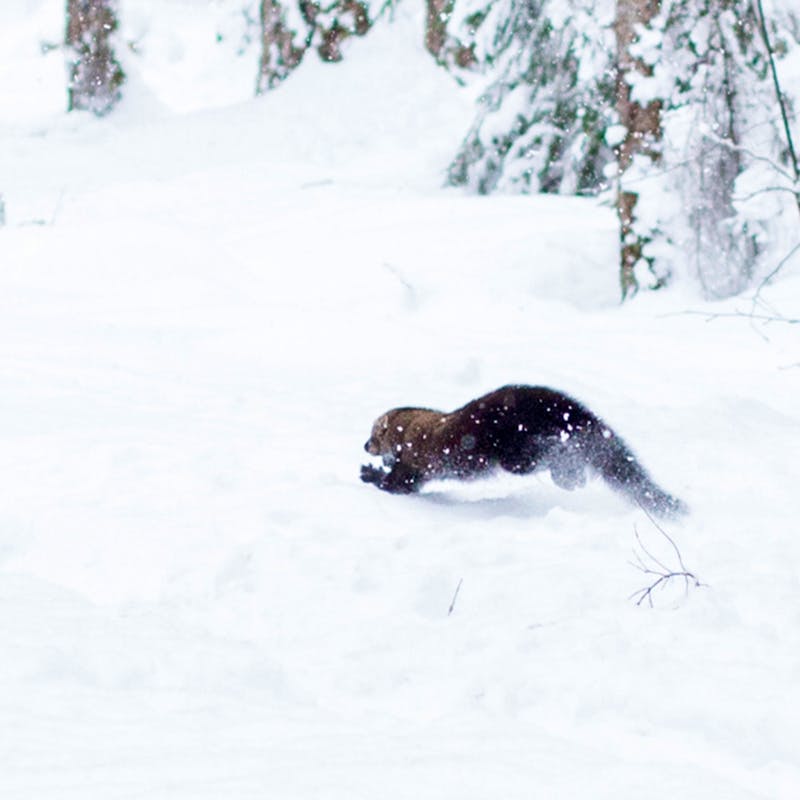Written by Courtney Sexton with contributions from Haley McKey
Toxic Mining Spill in the Animas River: An estimated three million gallons of wastewater spilled out of an abandoned mine area near Silverton, Colorado on August 5, turning the Animas River orange from heavy metal pollution. Since then, the spill has reached into Utah and New Mexico. The spill originated at the Gold King mine site, which was closed in 1923. Though now contained, the spill reached into the San Juan River in New Mexico, which is home to several species of highly endangered fish such as the razorback sucker and Colorado pikeminnow. We aren’t certain what impact this will have on endangered fish and other sensitive aquatic species downstream, or what future impacts from exposure might be, but these species already face myriad threats to survival and this new spill is certainly likely to compound them. Mine drainage is an ongoing problem that we continue to pass on to future generations because of inadequate and delayed band-aid fixes. This latest spill is yet another tragic example of the consequences of unbridled resource exploitation and unregulated infrastructure, and only one of the reasons why Defenders is opposing poorly-planned mine development in sensitive watersheds, endangered species habitats and other environmentally sensitive areas, such as the Montanore Mine in Montana and Patagonia mine in Arizona.
Winning Week for Threatened California Sea Otters: It’s been a great week for California’s threatened sea otter populations. Last Friday, Governor Brown signed a bill into law that will renew the California Sea Otter Fund for the next five years. The fund is critical to research, recovery and protection of threatened California sea otters, and was set to expire in December 2015. Senator Bill Monning authored, and Defenders of Wildlife and Friends of the Sea Otter sponsored, the bill to renew the fund. The Sea Otter Fund is an incredible way for residents to play a role in helping recover sea otters. Since 2007 the California income tax form has included the option for Californians to voluntarily contribute to the fund, resulting in over $2 million raised to protect sea otters. And in addition to the fund renewal, the Sacramento County Superior Court struck down rules that allowed for excess agricultural runoff in California; the runoff and farm pollution has led to dangerously high nitrate levels that affect people’s drinking water and has been linked to sea otter deaths.

Protecting manatees at Three Sisters Springs: The U.S. Fish and Wildlife Service has unveiled a proposal that offers bold new options for protecting manatees while they seek shelter from the cold in Florida’s iconic Three Sisters Springs in Crystal River. The alternatives include limiting or prohibiting opportunities to swim with manatees. Currently there is no limit on the number of swimmers allowed in the spring with the manatees at any one time. This situation results in manatees being harassed or harmed by visitors wanting to interact with them. When they encounter crowds of people, some manatees turn around and head back to colder water, placing them in danger of dying because of increased stress due to the cold. Defenders of Wildlife will work with the Fish and Wildlife Service to secure long overdue and badly needed protection for manatees when they need to rest without being disturbed.
Things may be looking up for sharks… In April Defenders petitioned the National Marine Fisheries Service (NMFS) to list the bigeye thresher shark and the smooth hammerhead shark under the Endangered Species Act. Currently, both of these shark species are “Vulnerable” worldwide by the International Union for Conservation of Nature (IUCN) – the sharks face threats due to targeted commercial fishing and bycatch, shark finning, and biological factors such as slow rates of reproduction that make it difficult for the population to recover from threats and declines. But there is potentially some good news looming on the horizon. On August 11 NMFS issued positive 90-day findings for both shark species, meaning NMFS has decided that both species “may warrant listing as either endangered or threatened.” Defenders will be submitting comments on the 90-day findings.

AZGFD Meeting: Last Friday, the Arizona Game and Fish Commission held a scheduled public meeting. Over 60 wolf supporters gathered at a rally in advance of the meeting, and 20 (including two girl scouts who spoke for their entire troop) were able to offer public comments expressing concern about the AZGFD’s (mis)management of lobos. After public comment was taken, Chairman Davis of the commission introduced a motion to oppose all new adult Mexican wolf releases, and now only allow the director to approve up to six pups per year being released only by cross-fostering. Cross-fostering means moving pups born in captivity into a wild den, a technique which has proven successful only once. Unfortunately, Commissioner Zieler seconded the motion, and it was voted on unanimously by the commission. This vote continues a long pattern of obstructing the recovery of the lobo. The commission did not discuss or take action on Congressman Gosar and Congressman Pearce’s lobo extinction bill, but many people addressed it in their public comments.




